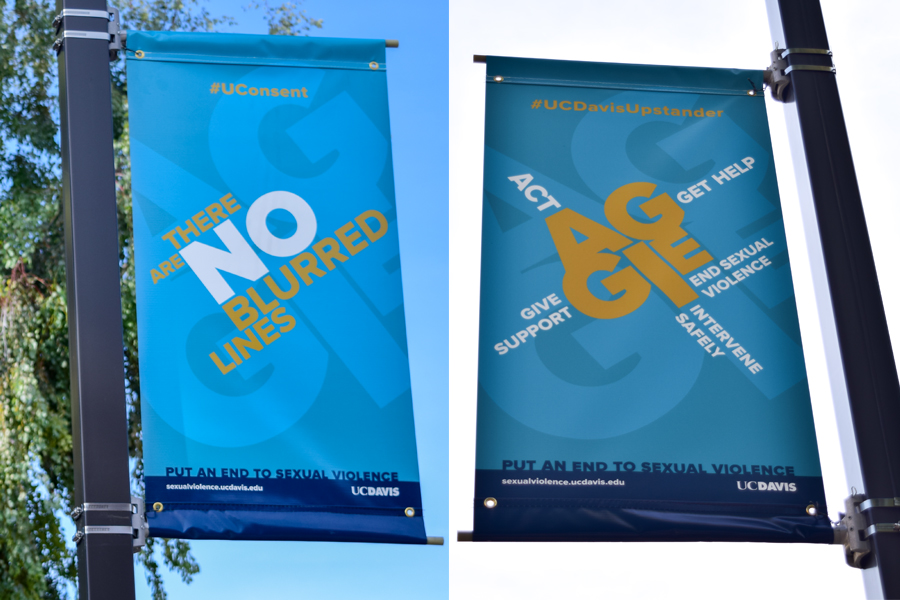
New policy extends UC Davis employee responsibilities when reporting sexual violence
In early January 2016, the University of California issued a revised edition of the Sexual Violence and Sexual Harassment Policy. This updated policy requires UC Davis employees, faculty and staff to report to the Title IX office when a student or campus community member has experienced some form of sexual violence. The policy also requires that UC Davis employees receive additional annual training that emphasizes how to handle situations that deal with sexual violence.
UC Davis Chancellor Linda P.B. Katehi notified students of this policy change in a campus-wide email on Feb. 3. In the email, Katehi highlighted the importance of educating UC Davis employees on what to do when learning that a student is experiencing sexual harassment.
Under the new policy, UC Davis employees must immediately inform Wendi Delmendo, UC Davis’ Title IX officer, if they become aware that a student or campus community member has experienced a possible incident of sexual harassment. From there, Delmendo will work with the victim to report the incident and ensure that the university addresses it.
“I view my role as ensuring that UC Davis has a comprehensive policy and a coordinated and effective process for responding to reports of sexual harassment and sexual violence and that we provide sexual harassment [and] sexual violence education and awareness to the campus community,” Delmendo said.
UC Davis faculty and supervisors who previously took required training that focused on sexual harassment situations will now see updated content in training programs. All other employees, including student employees, will be required to take a new online training course.
To encourage reporting, the new policy also provides immunity in most cases for individuals using alcohol or drugs around the time the sexual violence incident occurred.
“Because alcohol, drugs and other intoxicants are often involved, complainants may be afraid to report prohibited conduct, where they have also engaged in an activity that violated university policy or state law, such as a person under age 21 drinking alcohol,” the policy states. “UC encourages the reporting of prohibited conduct and therefore generally does not hold complainants and/or witnesses accountable for alcohol or drug-related student violations that may have occurred at the time of the prohibited conduct.”
Despite these efforts, there are still some concerns over the vulnerability of high risk communities of sexual violence. Fourth-year technocultural studies major and the Gender and Sexuality Commission Chair Ivon Garcia expressed their thoughts on what the university could do to improve resources for community-specific victims.
“People who are low-income, who are undocumented, who are trans, who are queer and people of color are still at high risk of sexual violence,” Garcia said. “UC Davis should consider providing more services for survivors, such as long-term counseling, and making sure community-specific counselors are available.”
According to Garcia, UC Davis should also increase the transparency of its resources so students know where to report incidents of sexual violence or harassment.
Since launching the #UCDavisUpstander campaign in November 2015, Katehi has continued to advocate for sexual violence prevention programs and reporting sexual violence.
“Preventing and responding to sexual harassment and sexual violence on our campuses is a responsibility we all share,” Katehi concluded in her email addressing the new policy. “I am confident that together we can create and maintain a safe environment for all our students, faculty and staff.”
Written by: EMMA SADLOWSKI – campus@theaggie.org



